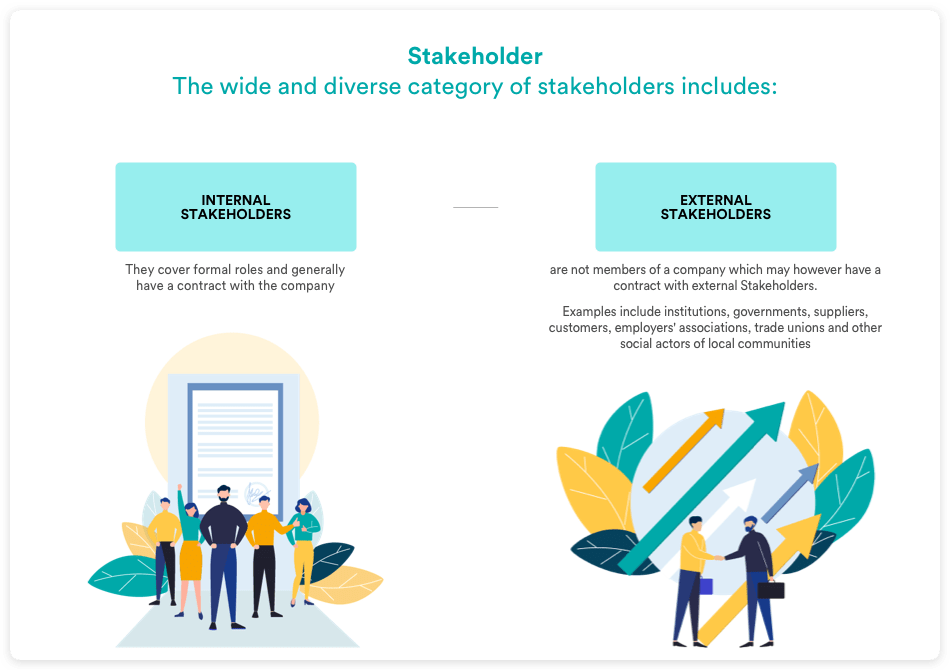Stakeholders
Words to understand
- Group
- Media
- Words to understand
- Stakeholders
Stakeholders

In economics, stakeholders are defined as persons, or groups of individuals, with interests that depend on the company in question to attain their goals, including majority and minority shareholders, employees, self-employed collaborators, customers, suppliers, social partners and lenders. The wide and diverse category of stakeholders includes:
- internal stakeholders, such as employees, shareholders, company managers. They cover formal roles and generally have a contract with the company;
- external stakeholders, are not members of a company which may however have a contract with external Stakeholders. Examples include institutions, governments, suppliers, customers, employers' associations, trade unions and other social actors of local communities.
Today the mix of Stakeholders also includes lobbyists, public opinion and media, competitors, potential employees or investors, partners and others.
Managing all types of relationships has become more complex than in the past because more and more business stakeholders are involved. The tendency is therefore to assign a level of priority – in other words, of relative importance to the company business – to the stakeholders, in order to structure objectives and establish indicators that take into account the contribution that they may make to attain the targets set by the company.

Corporate Social Responsibility (CSR) is the model of governance and strategic management that permits creating value for all Stakeholders and ensures the equal distribution thereto. The company's responsibility consists of its commitment to answer for its behaviour and results on an ethical level and establish communications with all Stakeholders that are able to build a relationship based on trust and the exchange of ideas for the common good.
Fonte: https://www.marketingefinanza.com/stakeholder-chi-sono-significato-1189.html
